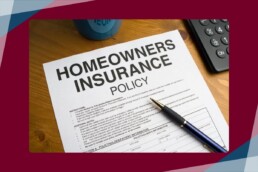7 Homeowners Insurance Buying Mistakes and How to Avoid Them
When it comes time to buying insurance for your home, you want to know your options. You need to know what your best bet is for a homeowners insurance plan, but you also need to know how to avoid costly mistakes.
Ready to get started? Keep reading to learn about common homeowners insurance buying mistakes and how to avoid them.
1. Failing to Purchase Enough Insurance
Many people look at their options for insurance and don’t get enough. This may be because they aren’t sure what they are looking at and don’t have the proper knowledge, but this could also be to save money.
However, the point of insurance is to make sure that if something were to happen to your home, you would be covered.
If you under-insure your home, you would be out more money than you would by simply paying for the insurance that needed to be paid. When it came time to file a claim, you would pay much more money out of pocket than if you paid the insurance premiums that you should have had.
This also has to do with undervaluing your home and your possessions when you get insurance. It’s never a good idea to guess the worth of your home. Instead, you need to get a much better understanding through intensive research on how much everything in your home truly costs. If not, you can find yourself not getting enough out of a claim since you undersold yourself.
2. Failing to Understand the Terms
When purchasing a homeowners insurance plan, it is crucial that you understand the terms and conditions of the policy.
If you buy Policy A, you should know everything that it covers. For instance, many homeowners insurance policies do not cover flooding. If that’s the case, you would have to get supplemental insurance. If you didn’t, you would be out of money if something happened.
Therefore, you have to understand exactly what you are getting with the insurance you purchase.
3. Choosing the Wrong Homeowners Insurance Company
When it comes time to choose a homeowners insurance company, you want to make sure you do your due diligence with research and understand more about them as a company.
You should read reviews, know their years of experience, and understand how their customer service is. Instead of choosing the cheapest company, it’s best to get a feel for who they really are, so you feel comfortable working with them in case something happens.
You should work with an agent that is easy to talk to, gives you what you need, and goes above and beyond.
4. Failing to Update Your Coverage
When you own a home, you are likely to make changes or purchase new possessions.
If you don’t update your coverage for years, you could have bought thousands of dollars in possessions that are technically not covered under your insurance policy. You may also take part in home improvement projects or conduct renovations. If you aren’t updating the coverage, these additional aspects of your house are not covered.
Because of this, if catastrophe struck, you would be in trouble. For instance, if there was a fire, your new possessions would not be covered, and the improved parts of the home wouldn’t be covered either. That means you would be looking at a lot of money lost.
5. Not Setting the Right Deductible Amount
An insurance deductible is what you pay out of pocket when you file a claim. So if you file a claim and your deductible is $5,000, you would have that deducted from the claim money you would receive. If your deductible is higher, your insurance premiums are probably lower, and vice versa.
As great as paying a lower premium sounds, you need to consider how much you would be willing to pay at the time of a claim all at once. It may be better for you financially to pay more each month and less during a claim.
This is how to set your deductible amount properly.
6. Forgetting About Exclusions Within Policies
Many homeowners forget that there are exclusions in many homeowners insurance policies.
This basically means that there is a fine print you will want to look at to guarantee that you are getting the coverage that you need.
For instance, your homeowners insurance may cover flooding from a burst pipe. However, if a hurricane rolled through and caused flooding that affected your home, that may not be covered. Knowing this before purchasing can help you make educated decisions about your policies.
7. Forgetting to Bundle Your Policies
When you are getting homeowners insurance, it is often cheaper to get the insurance and bundle it with other insurance you need, like auto insurance.
Doing this can get you much better rates and save you money every single month.
Avoid These Homeowners Insurance Buying Mistakes
When it comes time for you to buy homeowners insurance, there are many things you need to know. For instance, you need to know these homeowners insurance buying mistakes that, when avoided, can save you thousands of dollars down the line!
Are you ready to work with an experienced insurance company that has your best interests at heart? Be sure to contact us to get started.
Related Articles
Homeowners Insurance in NJ: A Comprehensive Guide
Key Takeaways Homeowners insurance in NJ protects your home, personal property, and liability, making it essential for safeguarding your investment. Annual…
What You Need to Know About Flood Insurance in NJ
Key Takeaways Flood insurance is essential for New Jersey homeowners, even those outside high-risk zones, as flooding can occur anywhere from various sources…


